[ Backlog - This log was adapted from my Patreon, to fill in the details about how this project has developed over the years. Check the link for the full post, and if you appreciate this project, consider supporting it! ]
I really didn't feel like I got much done this month until I looked back through my photos to make this post. It turns out I got a lot done! The transition into winter always catches me off guard. As it gets dark and wet, I have to shift my tinkering indoors. Part of how I've been coping with that transition this month, besides binge watching Downton Abbey, is by spending a lot of time experimenting with the Trash Printer.
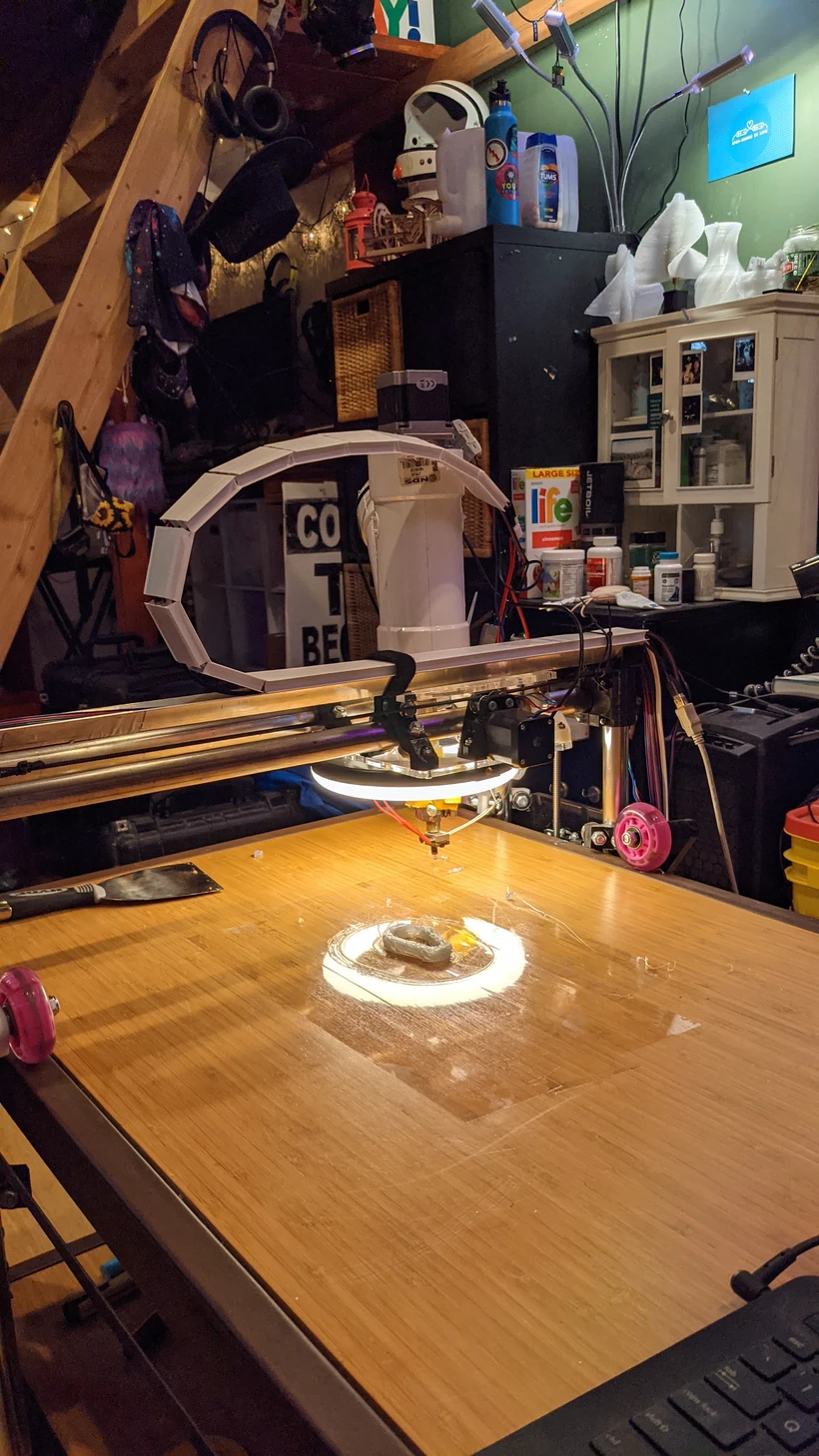
So naturally, I turned my coffee table into a Trash Printer. For years, I've been using a plastic folding table as the platform for the printer, which was cheap and portable, but I always had trouble with the bed being too uneven to get good first-layer adhesion, and without good adhesion, its really hard to get good prints.
Taking a tip from my friend Darcy over at the Trash Hackers Collective, the only other person in the world (so far) to independently replicate a Trash Printer, I started experimenting with just using packing tape. A lot of packing tape is polypropylene-based, which the plastic bonds strongly to, and the adhesive holds it firmly in place. Between the tape and the flatter, sturdier table, my print success rate went way up, and the overall print quality got better too.
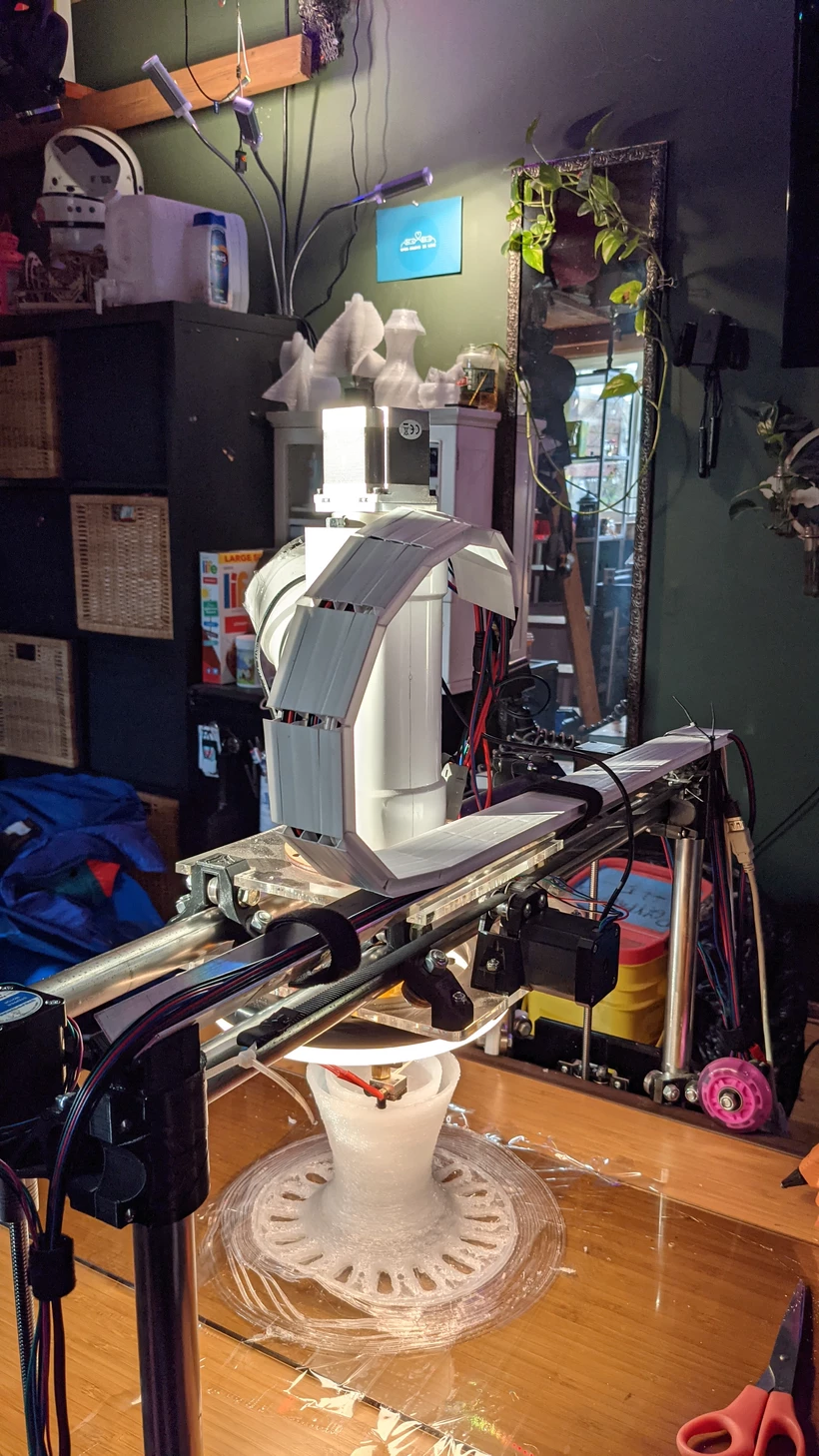
I ended up putting some glass down to protect the wood, and with the tape, it works great! Since then I've been able to make much more consistent prints that fail much less often!
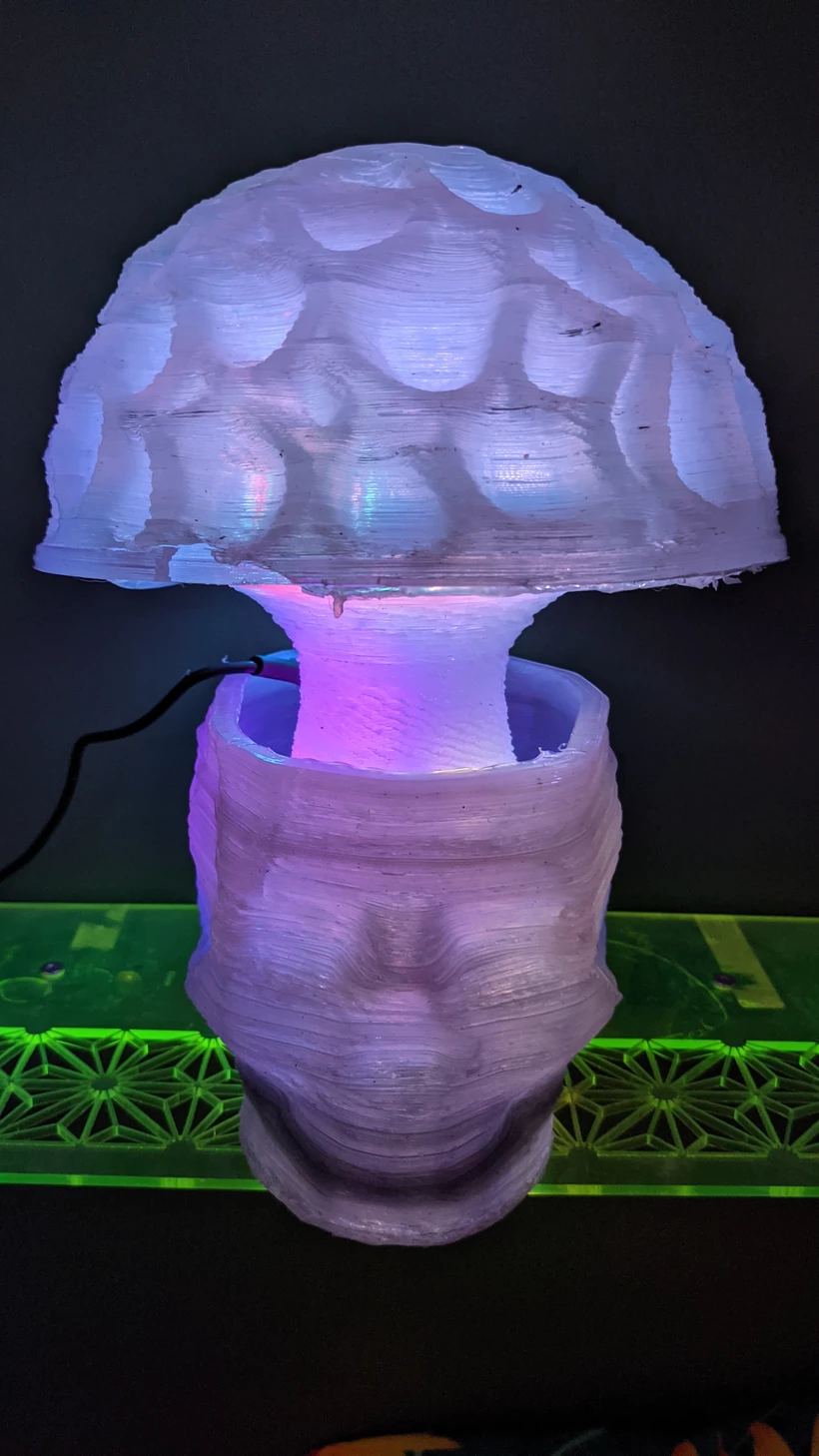
So far, I've mostly been experimenting with this nice, clean translucent polypropylene that the Trash Hackers gave to me, that came from trash-bags full of one-time-use test tubes donated by a wine company that produces them as a waste product of their business.
But here's the thing - it's called the Trash Printer, not the Highly Pre-Processed Industrial Waste Printer. The goal of this project has always been to be able to take real, actual trash as its feedstock, as unrefined as it may be.
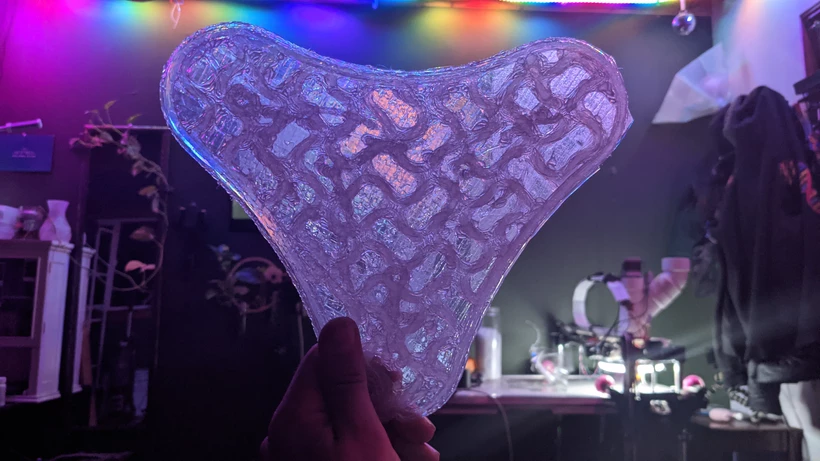
The stuff I have been using is technically trash, but it's not really the same as actual household trash - the actual plastic items that actually accumulate in our homes everyday, like takeout containers, prescription bottles, coffee cups, and milk jugs.
If the Trash Printer could print with that kind of trash, with all the bits of paper, dirt, food, and grit, just thrown into the shredder and recycled on the spot into kind-of-anything-you-want, that would be kind of a big deal.
So I felt obligated, now that the printer is working better, to try and down-grade the quality of my feedstock, and try printing with real-world plastic waste.
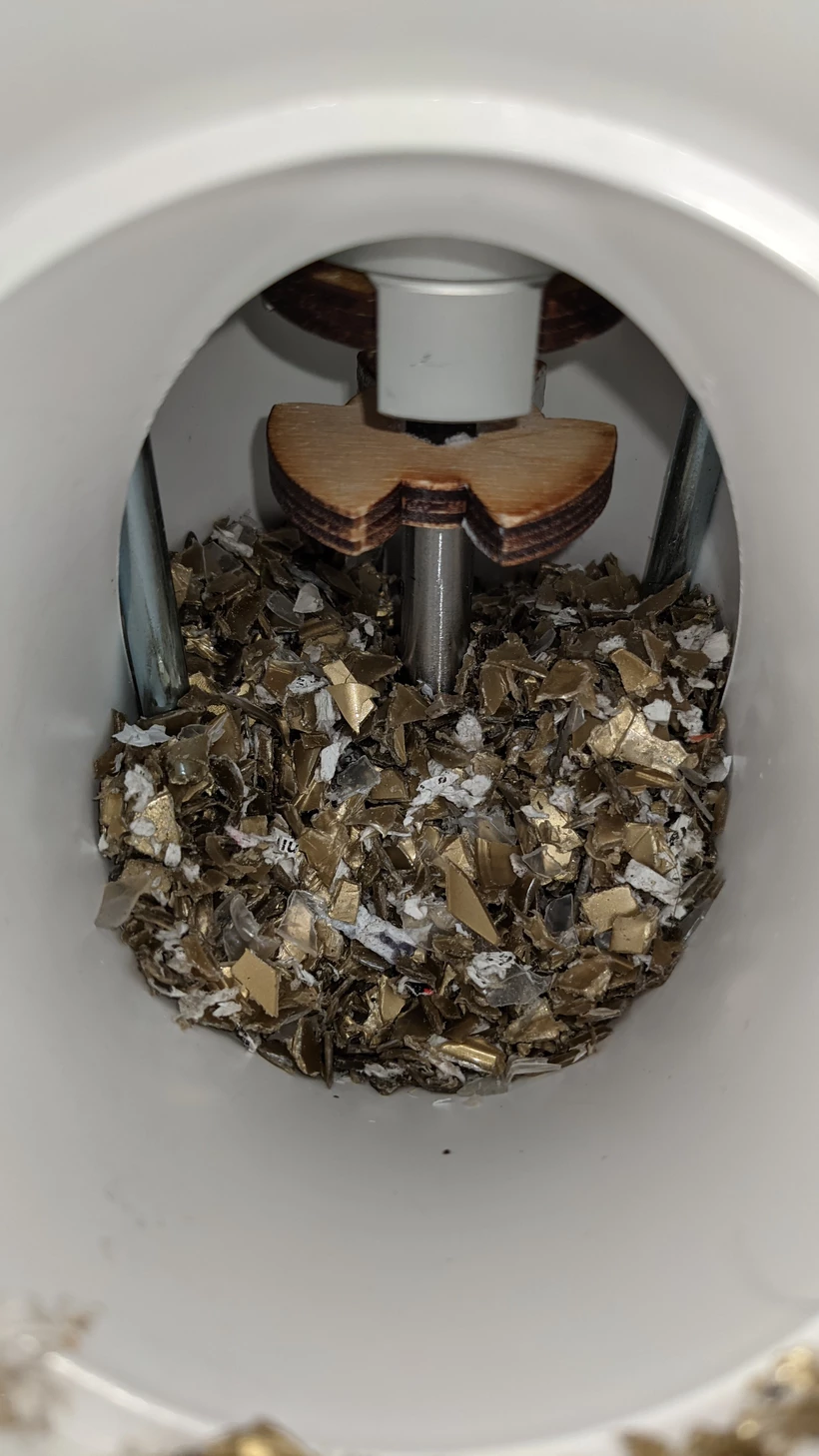
It turns out you can pretty much just do that. The bits of sticky paper labels didn't seem to affect the auger, or get stuck in the extruder, as I had feared. This is one of the main benefits of skipping the filament-making step - you lose resolution but you can use much lower quality material, with lots of contaminants that would otherwise clog the extruder on a typical 3D printer.
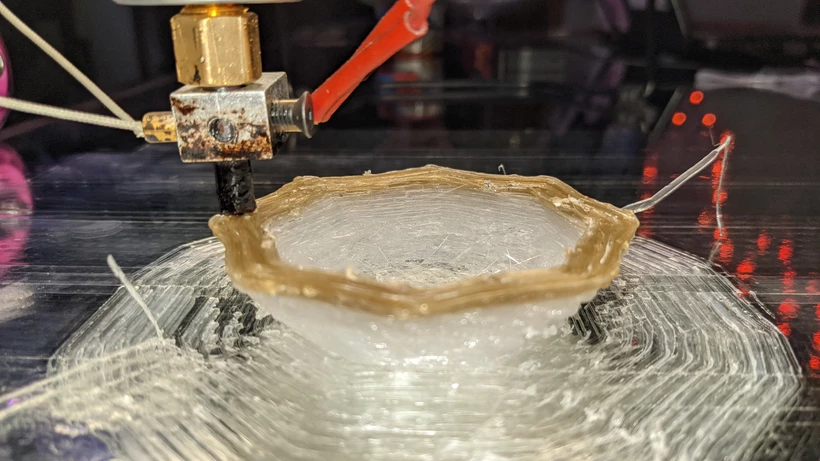
The bits of paper just came out with the plastic, and made some noticeable ridges on some of the layers, but that was about it. And that means that while you CAN clean your plastic for cleaner looking prints, you don't HAVE to, and that's a big deal.
So recently I've gotten into the habit of taking my take-out containers and other #5 trash and just throwing it into my shredder instead of into the bin! It's so satisfying!
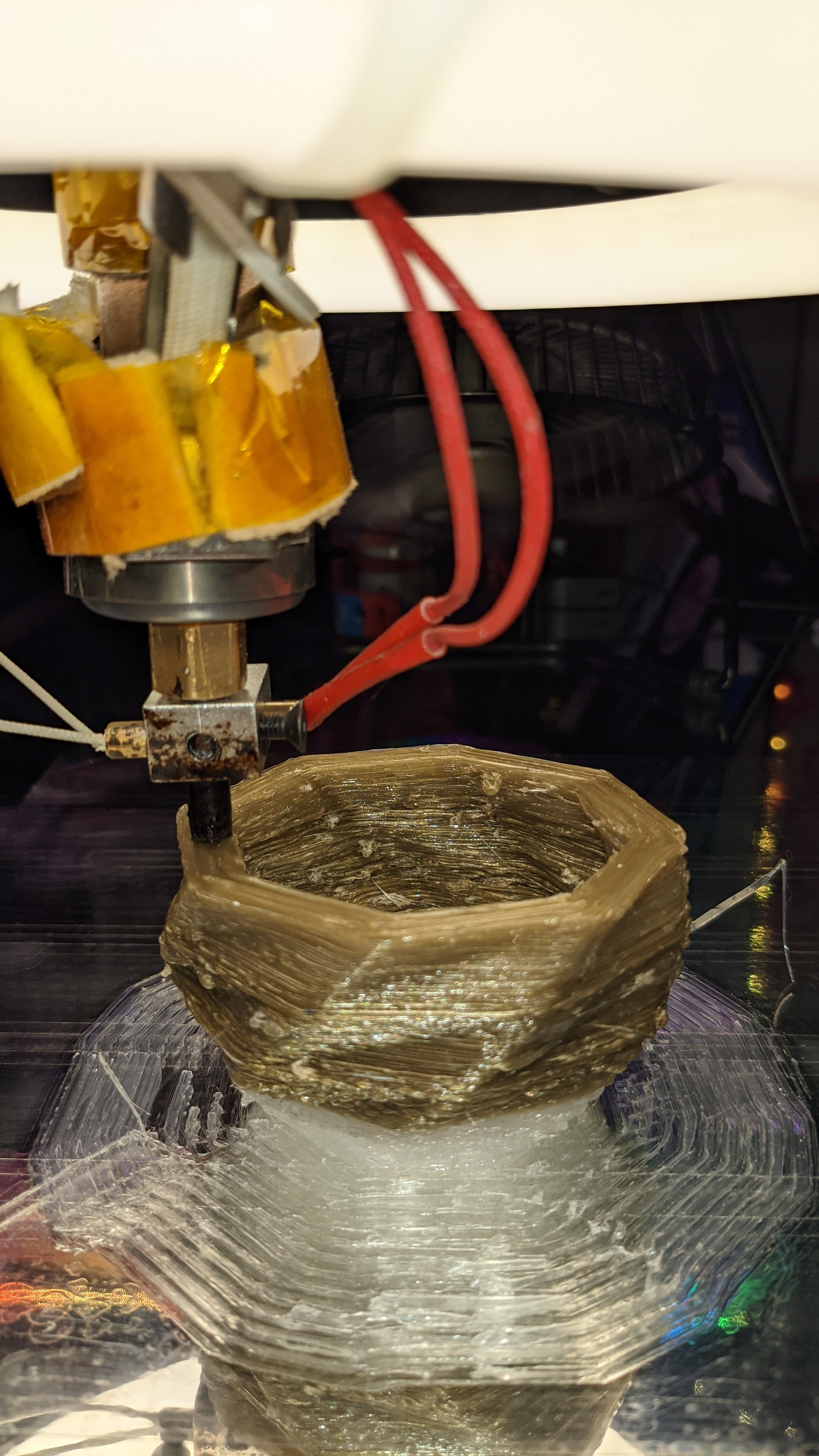
There is something really magical about making this transition from theory into practice, to finally be able to start using actual trash as feedstock, turning it right back into something new and interesting, as all life does.
As Dr. Ian Malcolm so eloquently put it, "Life, uh, finds a way."
So thanks for helping me, uh, find a way.
 Sam Smith
Sam Smith
Discussions
Become a Hackaday.io Member
Create an account to leave a comment. Already have an account? Log In.